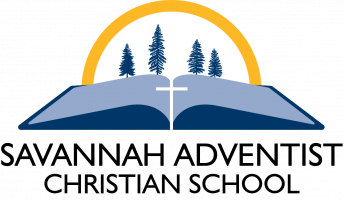The overall goal is to create a learning environment where:
the student achieves mastery in curriculum areas
the student is a critical thinker and problem solver
teaching is student-centered
curriculum is authentic, relevant, meaningful, and standards-based
education includes all learning styles
Bible: Entire curriculum is Bible-based; spiritual principles are integrated into all subject areas. Bible class includes Bible stories, memory work, and hands-on activities.
Math: Big Ideas. Textbooks are consumable. Common Core correlated. Class time includes direct instruction and inquiry-based strategies. Students use hands-on activities and complete workbook pages, along with using the website IXL.com for individualized learning and practice.
Third grade – topics include: addition & subtraction to one thousand; data interpretation; multiplication & division facts and strategies; fractions; measurement; perimeter & area; two-dimensional shapes.
Fourth grade – topics include: place value, addition & subtraction to one million; multiplication of one- & two-digit numbers; division facts; factors, multiples, and patterns; fractions & decimals; two-dimensional figures; angles; relative units of measurement; perimeter & area.
Language Arts: Pathways. Our literacy program integrates reading, writing, grammar/language, speaking & listening through an authentic literature-based instructional approach.
Speaking & Listening: Students are given opportunities throughout the day to practice the essential skills of proper speaking and active listening. This is integrated in all curriculum areas. We also are involved in the radio station, WYAW 93.5 .
Reading: The reading component includes the following:
Consistent time for self-selected independent reading – a set time during the school day with opportunities for students to read books of their choosing, on their independent reading level.
Guided reading -- fluency, vocabulary, comprehension, and organization skills are emphasized as students read at their instructional reading level.
Literature talk -- time spent talking about reading as a whole class, in partners, with the teacher. Talking about books helps students think about what they are reading as well as get acquainted with the books others are reading. Formal book reports are also required each quarter.
Just Read -- a home reading program. Students are expected to read at home for a minimum of 15-20 minutes per day. Parents are encouraged to read with their children and to celebrate their successes.
Writing: Writing is taught in a workshop format and includes:
Recursive Processes -- writers learn and use the processes of prewriting, drafting, revising, proofreading, and publishing.
Conferencing -- student with teacher: guiding and evaluating work. Student with student: sharing, learning to edit, giving useful feedback.
Audiences -- writing for a reason; authentic moments.
Usage -- students learn rules for grammar & mechanics through reading and writing.
Handwriting – A Reason for Writing includes daily practice words & weekly Bible verses. Third grade students transition into cursive handwriting, and fourth grade students continue to develop their cursive skills.
Language:
Spelling -- A Reason for Spelling activity book is used to teach words that follow phonetic rules, as well as high-frequency words that are exceptions to the rules. Some emphasis is given to correct usage of these words as vocabulary. Weekly spelling tests are given.
Grammar -- students learn the basic parts of speech through authentic reading and writing activities.
Science: By Design Science. Classes include hands-on experiments, projects, and field trips, and are taught from the Biblical creation perspective, emphasizing a loving Creator and His plan for perfect restoration of the world. Four units are taught each year, with content alternating every other year, in each of the following areas: Life Science, Human Body/Health, Earth & Space Science, and Physical Science.
Social Studies: Communities / Regions (alternating years). Projects, field trips, art activities, and study skills are incorporated.
P.E.: The physical education class will focus on fitness and the development of habits & skills for a lifetime of physical fitness. A core value in P.E. is good sportsmanship.
Computers: Computer education is integrated into other subjects. A use agreement must be signed as part of the school enrollment process.
Art & Music: The fine arts help to round out the whole person; music and art classes will assist students in appreciation and creation of art through various sight and sound media.
